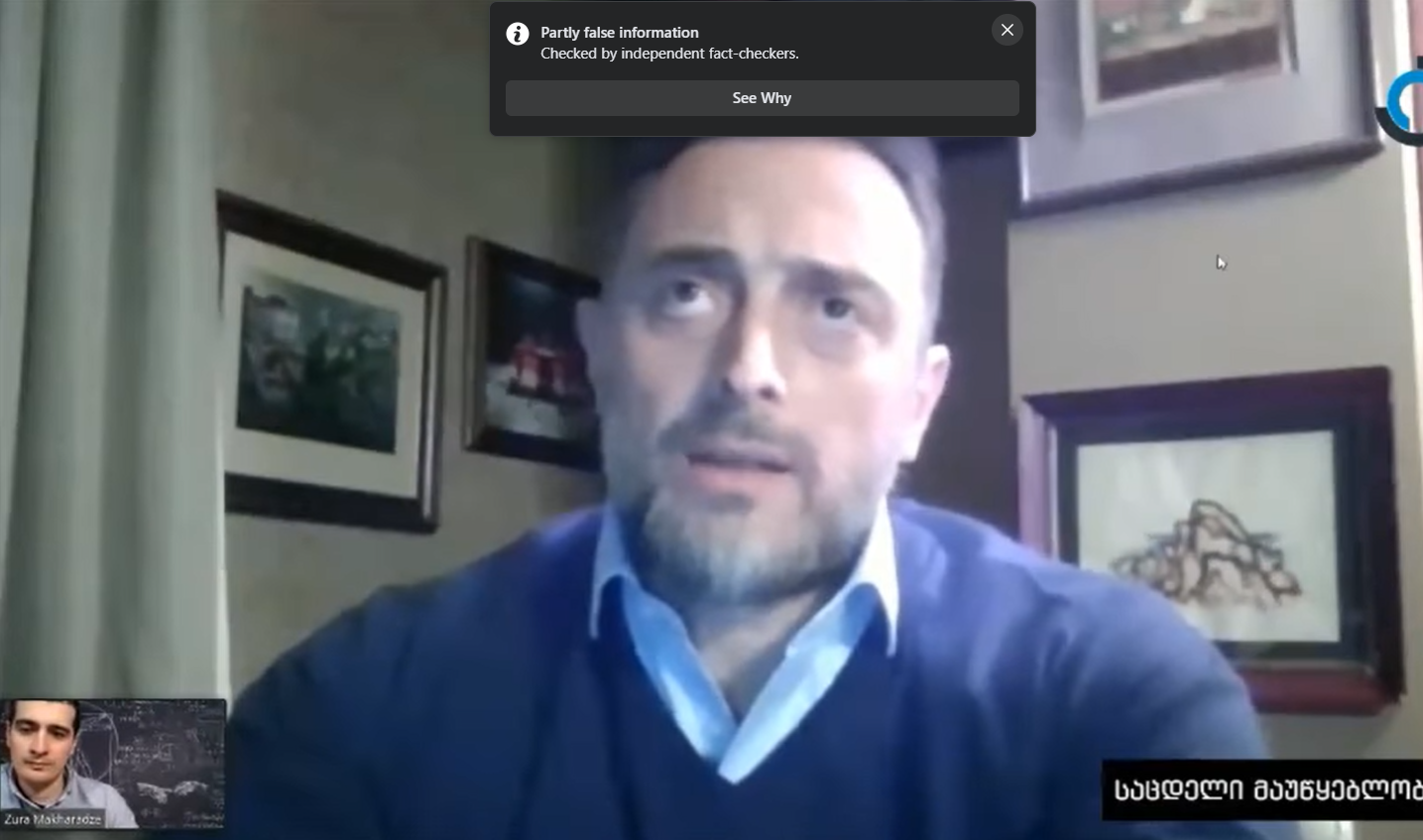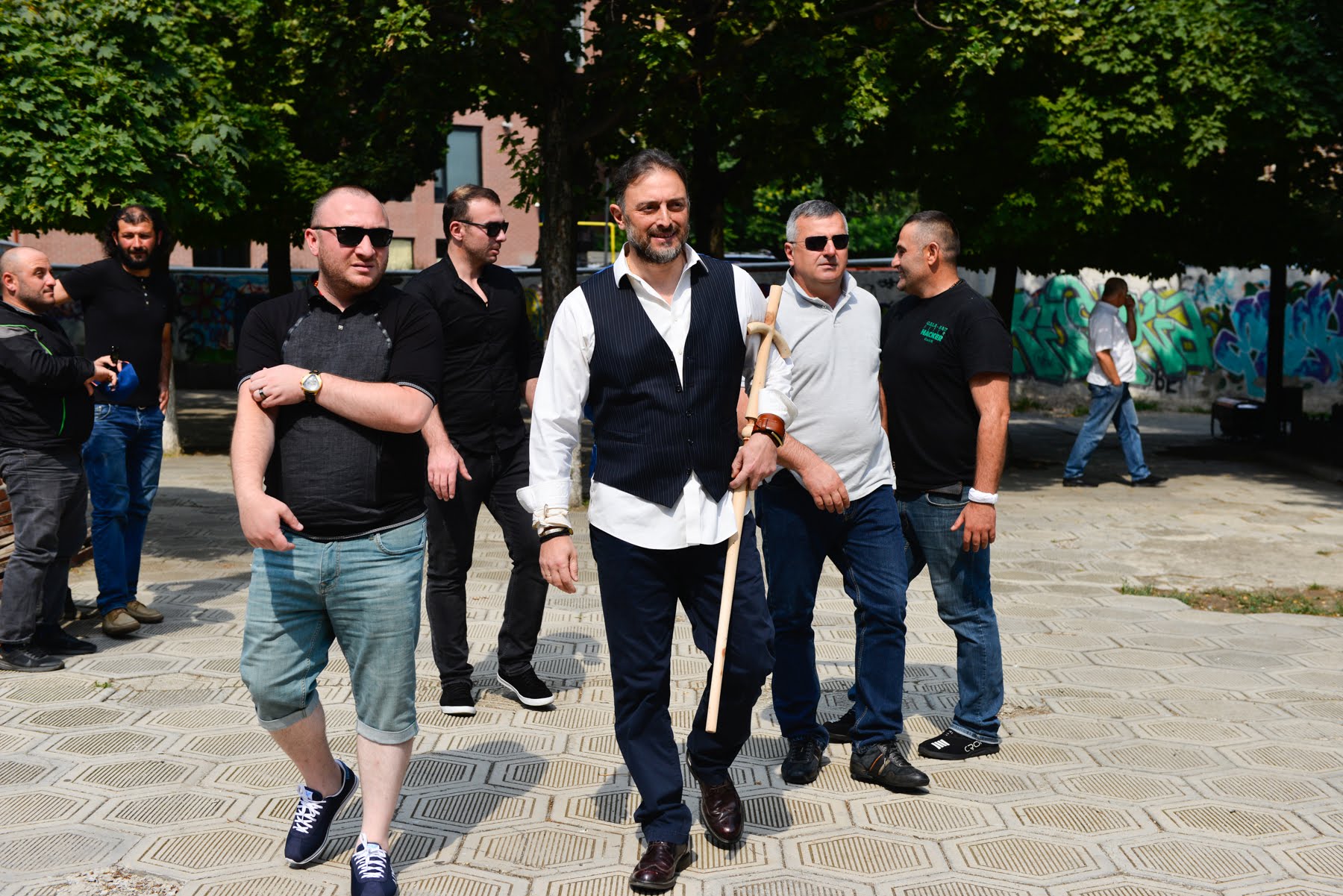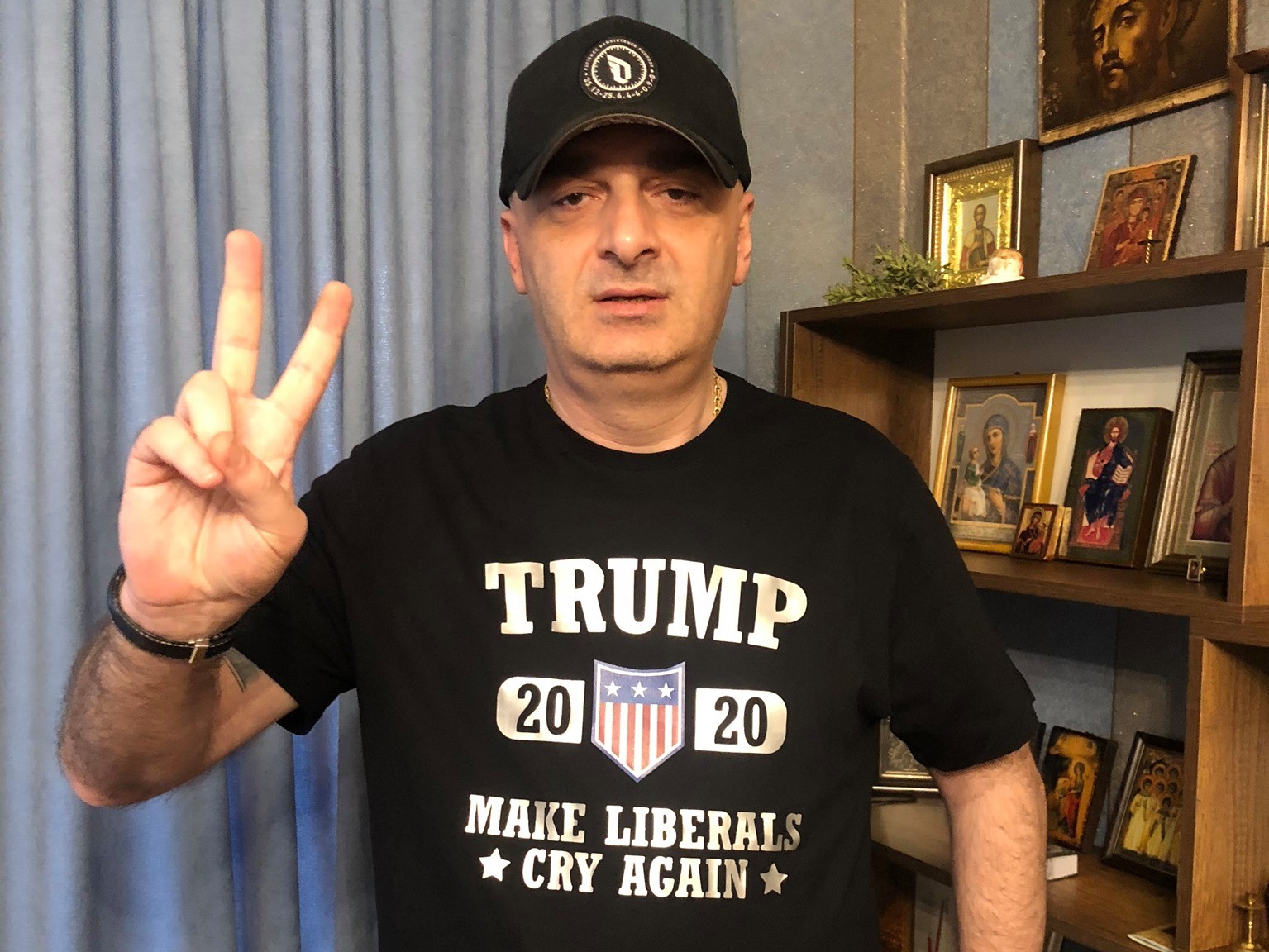
Georgia’s ultra-conservatives gained a boost to their outreach in January, after Alt Info began broadcasting on national TV. Despite being banned on Facebook, the Communications Commission granted a licence to the group to broadcast their Trump worship, conspiracy theories, and homophobic and xenophobic hate to homes nationwide.
‘Stay tuned. Don’t switch to the liberast channels’ — reads a message displayed between programming on Alt Info, a recently launched TV channel available to over 340,000 subscribers of TV provider Magticom.
‘Liberast’ is a mixture of the words ‘paederast’ — a homophobic slur used to describe gay men — and ‘liberal’. This neologism is frequently used by the far-right in Georgia, including Alt Info, against those they disagree with.
Alt Info, which up until now has relied on its social media presence, regularly reports on events in Europe and the US in Georgian with Breitbart-style alarmist framing and anti-liberal hyperbole. These include stories of Christians being ‘oppressed’ in the western democracies and migrants ‘threatening’ European cultural and national identity.
Fierce critics of gender equality, liberal drug policy, and Georgia’s ‘relaxed’ immigration policy, Alt Info have recently been fascinated by former US President Donald Trump.
Following the storming of the US Capitol building in January, debunked conspiracy theories about anti-Trump groups being behind the riot quickly spilt over to the Georgian-language internet, with groups like Alt Info being at the fore.
‘The footage has mushroomed proving the participation of Antifa and BLM [Black Lives Matter] members among the protesters as provocateurs’, Levan Vasadze, an ultra-conservative campaigner and businessman told Alt Info in an interview on 9 January.
He alleged that the storming was orchestrated by Trump’s ‘globalist’ enemies.

Their pro-Trump video discussions and other commentaries on domestic Georgian issues abruptly ended last Autumn when, a week before the 31 October parliamentary elections in Georgia, Facebook removed 130 online accounts that they said were non-transparently linked to Alt Info, as well as the Alt Info page itself.
That’s when Alt Info, claiming ‘liberal censorship’, announced it would ‘move on to the next stage of the information war’ — focusing on TV.
Messages based on Fascism
The Georgian Communications Commission granted Alt Info authorisation late last November, around a month after being banned from Facebook.
‘Such an abuse of freedom of expression can be explained by the Georgian government failing to recognise violent extremism as a danger, and consequently being bereft of policies directed at preventing and combating it’, Aia Beraia, an activist and researcher at Tbilisi Pride told OC Media.
Tbilisi Pride was behind the first queer pride march planned in the Summer of 2019, an event that was cancelled after Levan Vasadze called for street patrols to be formed to hunt down and tie up activists with belts. Vasadze is a frequent guest and supporter of Alt Info.

On Alt Info at the time, host Shota Martinenko hailed Vasadze’s initiative to ‘keep order… even with force’, something he said the Georgian state was failing to do.
According to Nattan Guliashvili from the Women’s Initiatives Supporting Group (WISG), Alt Info’s messages are ‘based on fascism’ but they avoid open calls for violence on TV. Guliashvili told OC Media that they were instead ‘beating around the bush’ by arguing for the supremacy of heterosexual Christian men over others and ‘similar points’.
‘There’s a need for a wider discussion in order to come up with solutions together’, Guliashvili said.
Guliashvili said that WISG was boycotting any private TV companies who were ‘in the service of big business’, accusing many of instrumentalising solidarity towards oppressed groups, including queer people, for their own gains.

According to Ucha Nanuashvili, former public Defender of Georgia and director of Tbilisi-based rights group the Democracy Research Institute, the Communications Commission checked the content ‘minimally’ before authorising and licensing Alt Info. Even these ‘minimal standards’, were already being violated, he said, and the Commission ‘should be expected to intervene’.
‘Stipulations of Article 56 of the Georgian Law on Broadcasting are clearly being violated’, Nanuashvili told OC Media.
Article 56.1 of the Broadcasting Law prohibits the airing of programmes ‘intended to abuse or discriminate against any person or group on the basis of disability, ethnic origin, religion, opinion, gender, sexual orientation or on the basis of any other feature or status’.
On 19 January, within days after Alt Info launched their own TV broadcasting, the leader of another Georgian far-right group, Georgian March, announced that they too would reach out to the public through their own new TV channel.
The Georgian Communications Commission did not respond to a request for comment.
A four-year love affair
Although conservative groups in Georgia are frequently dismissed as being ‘pro-Russian agents’, many, including Alt Info, have cast their ideological net far wider than Russia alone.
After Trump was elected in 2016, many ultra-conservative groups in Georgia appeared inspired by the new US president. Others have rather appeared to have instrumentalised his invocation, including those using his example to fight a stigma that they were pro-Russian.
WISG’s Nattan Guliashvili said that while Alt Info seemed to have Russian connections and ‘thinly veiled’ pro-Russian messages, analyses of Georgia’s far-right was frequently geopoliticised.
[Read more: Opinion | Labelling Georgia’s far-right ‘pro-Russian’ is reductionist and counterproductive]
‘We also need to talk about international religious organisations with big capital that might be based in the West. Ultra-fascism does not reach [Georgia] only from Russia’.
Sandro Bregadze, the leader of Georgian March, argued that their ideology ‘was twin to Donald Trump’s ideology’ rather than Putin’s.
Not long after Trump’s election victory, Bregadze accused the Georgian media, who he said was funded by American billionaire George Soros, of ‘discrediting the US President’ in their coverage. He even floated organising a pro-Trump demonstration in Tbilisi over the issue.

The Alliance of Patriots, the only ultra-conservative group to win seats in parliament in recent years, insisted that the US Embassy in Tbilisi, as well as US non-profits NDI and IRI, barely represented President Trump in the region.
A day before the parliamentary election last October, the Patriots’ leader, Irma Inashvili, also claimed that ‘individual representatives from the US security forces’ who she said were opposed to Donald Trump, had pressured the Georgian government into making her party lose.
‘It’s good that the most powerful man [in the world], and today it is Trump, says the same [as we do]!’, Davit Tarkhan-Mouravi, another leader of the Alliance of Patriots, hailed the US President’s anti-globalist speech at the UN General Assembly in September 2018.
In the run-up to Trump’s bid for reelection, former career diplomat Irakli Gogava spearheaded an attempt to form a more respectable-looking conservative pro-Trump movement in Georgia, under the motto ‘God, Family, Country’.
Gogava did not expect Trump to lose, let alone to face a second impeachment.
‘Mainstream liberal media naming Joe Biden as the projected winner does not mean much because it is just a PR step’, Gogava assured Georgians on 9 November.
As Biden’s presidency now gets underway, it remains to be seen from where Georgia’s alt-right will turn next.











